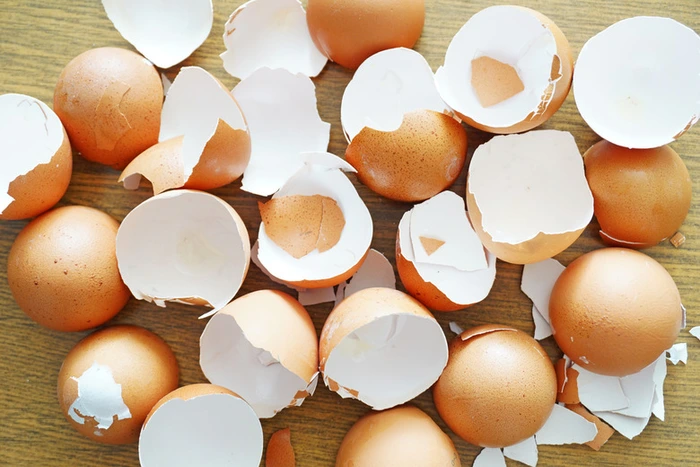As pet owners, we often wonder about the foods and treats we can safely share with our four-legged companions. One common query is whether dogs can eat eggshells. After all, eggshells are made of calcium and other minerals, so they might seem like a natural supplement for our canine friends.
However, the answer to “can dogs eat eggshells?” isn’t a simple yes or no. There are both potential benefits and risks to consider when it comes to feeding eggshells to dogs. On one hand, eggshells can provide a valuable source of calcium and other key nutrients.
This could help support your dog’s bone health, digestion, and potentially even reduce joint pain.
On the other hand, improperly prepared eggshells can pose a choking hazard or cause intestinal blockages in dogs. There are also concerns about the risk of Salmonella contamination. So while eggshells may seem like a tempting supplement, it’s crucial to understand the right way to incorporate them into your dog’s diet, if at all.
In the following sections, we’ll dive deeper into the pros and cons of feeding eggshells to dogs, provide guidelines on how to properly prepare them, and discuss alternative calcium sources. By the end, you’ll have a better understanding of whether eggshells are a safe and beneficial addition to your canine companion’s meals.
Exploring the Pros and Cons of Feeding Eggshells to Dogs
Dogs are curious creatures with a penchant for chewing on all sorts of objects, including the shells of the very eggs we feed them. But is this canine behavior safe, or should we be concerned.
What Are the Benefits of Eggshells for Dogs?
Eggshells are packed with a treasure trove of essential nutrients that can provide a range of health benefits for dogs. Here are some of the key advantages of incorporating eggshells into your pup’s diet:
High in Calcium and Other Nutrients
Eggshells are an excellent source of calcium, containing up to 2,200 mg of calcium per teaspoon. They also contain other essential minerals like phosphorus, magnesium, and strontium. These nutrients are crucial for maintaining strong bones and teeth, as well as supporting overall canine health.
Can Aid Digestion and Bone Health
The calcium and other minerals in eggshells can help improve digestion by regulating the pH balance in a dog’s stomach. Additionally, these nutrients are vital for developing and maintaining healthy bones and joints, potentially reducing the risk of arthritis or other joint-related issues.
Potentially Help Reduce Joint/Arthritis Pain
Some studies suggest that the silicon and strontium present in eggshells may have anti-inflammatory properties, which could help alleviate joint pain and symptoms of arthritis in senior dogs or those with joint problems.
Are There Any Risks to Feeding Eggshells to Dogs?
While eggshells can provide numerous benefits, it’s essential to be aware of the potential risks associated with feeding them to your canine companion:
Choking Hazard if Not Properly Prepared
Whole or large pieces of eggshell can pose a serious choking hazard for dogs, especially smaller breeds. It’s crucial to grind or blend the eggshells into a fine powder before incorporating them into your dog’s food.
Possibility of Intestinal Blockage
If not ground or broken down sufficiently, eggshell fragments can potentially cause intestinal blockages, which can be life-threatening for dogs. This is particularly a concern for dogs with sensitive digestive systems.
Concerns Over Salmonella Contamination
Eggshells can potentially be contaminated with Salmonella bacteria, which can cause severe gastrointestinal issues in dogs. Proper cleaning and sterilization of the eggshells is essential before feeding them to your pet.
How to Properly Feed Eggshells to Your Canine Companion
To reap the benefits of eggshells while minimizing the risks, it’s important to follow these guidelines:
- Cleaning and Sterilizing the Eggshells: Thoroughly wash the eggshells under hot water to remove any residual egg matter. Then, bake the shells in the oven at 300°F for 10-15 minutes to kill any potential bacteria.
- Grinding or Blending the Eggshells into a Powder: Using a coffee grinder, blender, or mortar and pestle, grind the eggshells into a fine powder. This will help prevent choking and reduce the risk of intestinal blockages.
- Incorporating the Eggshell Powder into Your Dog’s Food: Add the eggshell powder to your dog’s regular food, mixing it in thoroughly. Start with a small amount and gradually increase the dosage over time.
Recommended Eggshell Dosage for Different Dog Sizes
The appropriate amount of eggshell powder to feed your dog will depend on their size and weight. Here are the general guidelines:
| Dog Size | Eggshell Powder Dosage |
| Small Dogs (Under 20 lbs) | 1/2 teaspoon per day |
| Medium Dogs (20-50 lbs) | 1 teaspoon per day |
| Large Dogs (Over 50 lbs) | 1-2 teaspoons per day |
Remember, these are just general recommendations, and you should always consult your veterinarian before introducing any new supplements to your dog’s diet, especially if they have existing health conditions or sensitivities.
When Should You Avoid Feeding Eggshells to Your Dog?
While eggshells can be a beneficial addition to most dogs’ diets, there are certain circumstances when you should exercise caution or avoid feeding them altogether:
- Dogs with Digestive Issues or Sensitive Stomachs: If your dog has a history of gastrointestinal problems, the added fiber and minerals in eggshells may exacerbate their symptoms.
- Puppies Under 6 Months Old: Younger puppies have more delicate digestive systems and may not be able to properly process the nutrients in eggshells.
- Dogs on Certain Medications or with Health Conditions: Consult your veterinarian before feeding eggshells to dogs with conditions like kidney disease or those taking certain medications, as the high mineral content could interfere with their treatment.
Alternatives to Eggshells for Supplementing Canine Calcium
If you’re hesitant about feeding eggshells to your dog or they have specific dietary needs, there are other ways to ensure they’re getting the necessary calcium and mineral supplementation:
- Commercial Calcium/Mineral Supplements: Look for high-quality, veterinarian-approved calcium and mineral supplements designed specifically for dogs.
- Natural Calcium-Rich Foods: Foods like cheese, yogurt, and sardines can provide a natural source of calcium and other essential nutrients.
- Consulting Your Veterinarian for Recommendations: Your vet can help determine the best calcium and mineral supplementation based on your dog’s individual needs and health status.
Conclusion About Can Dogs Eat Eggshells?
When done properly, incorporating eggshells into your dog’s diet can be a safe and natural way to provide them with essential calcium and other beneficial nutrients. However, it’s crucial to exercise caution, properly prepare the eggshells, and monitor your dog’s reaction to ensure their safety and wellbeing.
Always consult your veterinarian before introducing any new supplements or foods, especially if your dog has existing health conditions or sensitivities. With the right approach, eggshells can be a valuable addition to your canine companion’s diet, supporting their overall health and well-being.
FAQs
Q:Can I give my dog boiled eggs?
A:Eggs should be cooked before being given to a dog.
Q:Do eggs help dogs with itchy skin?
A:Yes, eggs can help alleviate itchy skin in dogs.
Q:Does chicken cause itching in dogs?
A:The immune system’s overreaction to the harmless chicken protein causes the symptoms of allergies.









